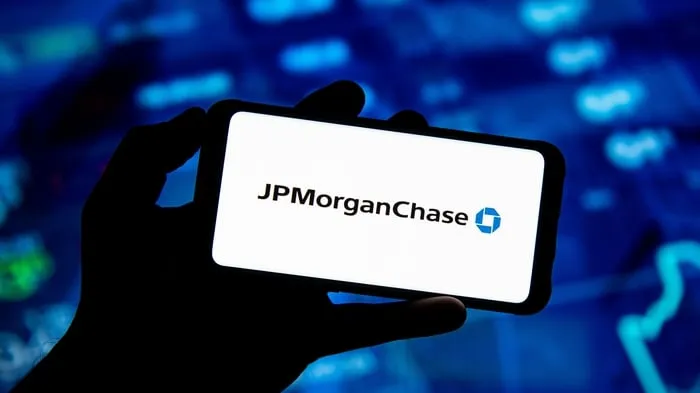Chase (JPMorgan Chase Bank) provides a range of financial products and services, including credit cards, auto loans, mortgages, and more. In the event that you have credit cards, there’s a possibility that one of them is a Chase card and that “JPMCB Card Services” will appear next to its name on your credit reports.
——————————————————————————————————————————
Why is JPMCB on my credit report, and what does it stand for?
Which credit cards does JPMCB issue?
Next steps: Examining your credit reports to look for any unusual activities
—————————————————————————————————————————–
Why is JPMCB on my credit report, and what does it stand for?

JPMorgan Chase Bank is referred to as JPMCB. It could appear on your credit reports for a number of reasons, such as the ones listed below.
Hard and soft inquiries
Hard inquiries
If you applied for a Chase credit card and gave the bank permission to check your credit, one or more of your credit reports may show a hard credit inquiry from JPMCB card services. Even if you did not recently apply for the card, you can still find the query on your credit report since a hard credit inquiry, which can lower your credit scores, can remain on your credit reports for up to two years.
Soft inquiry
A soft credit inquiry can also appear on your credit report if you attempt to prequalify for a credit card offer. Although a soft inquiry has no impact on your credit scores, you can still see it on your credit reports.
What happens if JPMCB appears on your credit record but you don’t remember approving the hard credit pull in the previous two years? Realizing you might have an unauthorized hard inquiry on your credit report can be disconcerting.
Consider the following five strategies if you find yourself in such a situation:
- Verify the company behind the inquiry: Contact the company that performed the inquiry and request proof that you authorized it. If they cannot provide evidence, ask them to remove the inquiry from your credit report. You can learn more about the process of removing erroneous hard inquiries.
- Report potential fraud: If you suspect fraudulent activity, report it through the Federal Trade Commission’s IdentityTheft.gov website. Moreover, you can also consider filing a report with the police.
- Consider a credit freeze: To prevent further unauthorized use of your personal financial information, you may want to freeze your credit. Keep in mind that while the freeze is in place, you may not be approved for new financial products. While a credit freeze won’t retroactively protect your credit, it can help prevent identity thieves from opening new accounts in your name.
- Place a fraud alert: Add a free fraud alert to your credit reports with the major credit bureaus. This will provide an extra layer of protection and alert potential creditors to verify your identity before granting credit.
- Dispute the unauthorized inquiry: Contact the credit bureaus to dispute the unauthorized inquiry. The bureaus are obligated to investigate all disputes and remove or correct any inaccurate information that is found.
By following these steps, you can address an unauthorized hard inquiry on your credit report and take appropriate actions to protect your credit and personal information.
Authorized users:
Being an authorized user entails being added to someone else’s credit card account with the approval of the primary cardholder. As an authorized user, you are granted permission to make purchases up to the credit limit of the primary account holder. However, you are not legally responsible for repaying the charges.
Being an authorized user can have benefits for your credit. The account’s activity, including on-time payments and a low credit utilization rate, can positively impact your credit history. It’s important to note that if the primary cardholder fails to make payments, it could have a negative impact on your credit.
If you were mistakenly added as an authorized user, you can typically remove yourself from the account by contacting the credit card issuer directly.
Which credit cards does JPMCB issue?

JPMorgan Chase Bank (JPMCB) issues a range of credit cards, including the following:
These credit cards are issued by JPMCB and offer various benefits and rewards associated with specific brands or loyalty programs.
Amazon Prime Rewards Visa Signature Card
Starbucks Rewards Visa Card
Southwest Rapid Rewards Priority Credit Card
Southwest Rapid Rewards Plus Credit Card
Southwest Rapid Rewards Premier Credit Card
United Club Infinite Card
United Explorer Card
United Gateway Card
United Quest Card
Marriott Bonvoy Boundless Credit Card
Marriott Bonvoy Bold Credit Card
World of Hyatt Credit Card
Next steps: Examining your credit reports to look for any unusual activities
According to research conducted by the Federal Trade Commission in 2013, around 20% of individuals find errors in their credit reports. These inaccuracies can have negative consequences, leading to missed opportunities for loans, credit cards, and other financial products. That’s why it’s mandatory to regularly review your credit reports.
In addition, you have the option to obtain free copies of your credit reports from all three major credit bureaus through annualcreditreport.com. Alternatively, services like BankBL allow you to access your credit reports and scores at no cost.
We strongly recommend considering the addition of credit monitoring to your financial tools. Credit monitoring services can assist in identifying and addressing potential errors or instances of identity theft on your credit reports. Taking immediate action is crucial, as it provides a better prospect of minimizing any long-term harm to your credit profile.
